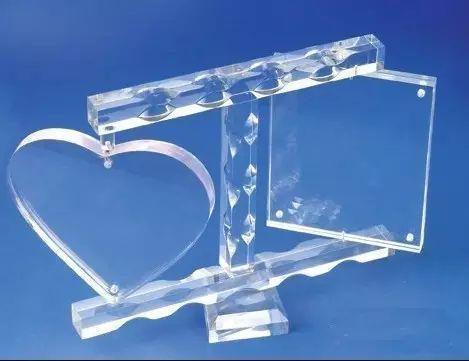PMMA is one of the commonly plastic transparent materials, let us know more about it
1. Performance of PMMA
PMMA is an amorphous polymer, commonly known as organic glass. It has excellent transparency, good heat resistance (heat deformation temperature is 98℃), good impact resistance, medium mechanical strength, low surface hardness, easy to be scratched by hard objects and leave marks, and is not easy to crack compared with PS. The specific gravity is 1.18g/cm3. PMMA has excellent optical properties and weather resistance. The penetration of white light is as high as 92%. PMMA products have very low birefringence and are particularly suitable for making video discs. PMMA has room temperature creep characteristics. As the load increases and the time increases, stress cracking may occur.
2. Process characteristics of PMMA
PMMA has strict processing requirements. It is very sensitive to moisture and temperature. It must be fully dried before processing (the recommended drying conditions are 90℃ and 2~4 hours). Its melt viscosity is relatively large and needs to be molded at a higher temperature (225-245℃) and pressure. The mold temperature is better at 65-80℃.
PMMA is not very stable. It will cause degradation when exposed to high temperature or stays at high temperature for too long. The screw speed should not be too high (about 60% is enough). Thicker PMMA parts are prone to “voids”. Large gates and “low material temperature, high mold temperature, slow speed” injection methods are required for processing.
3. Typical application range:
Automobile industry (signal light equipment, instrument panels, etc.), pharmaceutical industry (blood storage containers, etc.), industrial applications (video discs, light diffusers), daily consumer goods (beverage cups, stationery, etc.).



